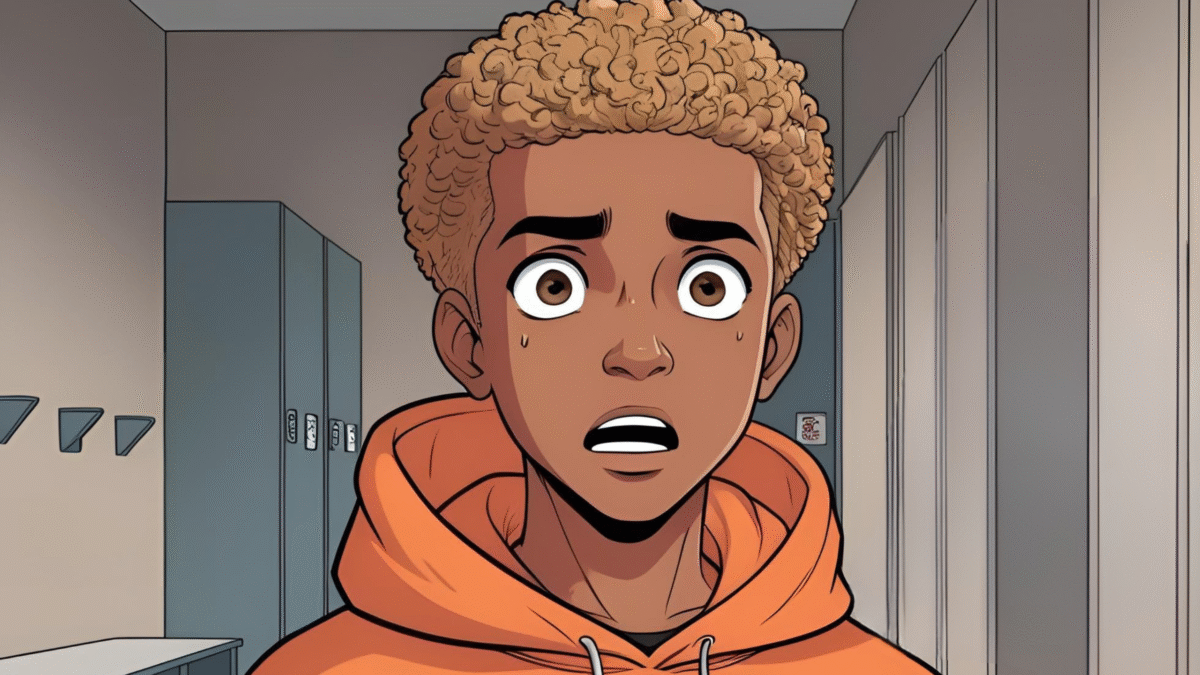Welcome to Animated Finance Stories
We teach financial literacy through real stories showing how money truly works in our everyday life.
Let’s dive in—because financial literacy isn’t just taught, it’s lived.
Introduction
From where we left off from The Side Hustle That (Almost) Got Me Arrested: Part 2,(https://animatedfinance.org/the-side-hustle-that-almost-got-me-arrested-part-2/)
I stood there, looking at the M-80 in my hand, not sure whether to laugh or feel nervous. It was one of those things you’d hear about growing up—kids daring each other to light one, someone’s older brother who blew up a mailbox, or the neighbor who swore they were banned for a reason. Now that I was actually holding one, it felt weirdly real, like I was stepping into one of those stories instead of just hearing it secondhand. Part of me knew it was dumb, risky even—but another part was curious. Not because I wanted to cause trouble, but because it felt like something everyone else had done but me. Like I was finally catching up, and I could make money from this.
But then, reality came crashing back. I went into my head, deep into the core of who I really was. I realized that just because something looks shiny doesn’t mean it’s gold. I had morals. I had a future. And no amount of money was worth my freedom—or my soul.
I looked at DJ, my friend, and tossed the M-80 firework back to him.
I said, “Man, I can’t do this. I respect you, but I can’t be part of this. It might look like fast money, but not all money is good money. The risk ain’t worth the reward. I’m not trying to trade my future for a quick come-up.”
Even though he was my boy, I had to draw the line, because getting involved in something illegal might make you a little cash now, but when the law catches up—or worse—your whole life changes. Prison time, a record, lost opportunities… all for what? A few bucks and a false sense of power?
Instead of taking the route of selling illegal fireworks, I decided to take a different path—one that still allowed me to hustle, but without compromising my values. It meant breaking one of my own rules, but not breaking the law. I had to break the rule to:
Never sell anything in the classroom.
But desperate times called for a different strategy.
New Selling Strategies
Alright, it was time—I had made up my mind to start selling in the classroom. This was going to be my new opportunity to increase my lackluster sales but I had to be smart about how I moved. In one of my classes, I came up with a simple but effective approach. I took out a sheet of paper and wrote:
“Candy for sale – 50 cents per lollipop. If you’re interested, write your name and how many you want. Put the paper and payment under Gaskin’s desk “
To avoid drawing attention, I teamed up with Gaskin. He was in most of my other classes, and luckily for me, he was the teacher’s pet—someone who flew under the radar. While the teacher kept a close eye on me, she barely noticed him. That made Gaskin the perfect partner. He would quietly handle all the transactions while I stayed lowkey.
In return, I paid him $1 per class.
- $1 per class × 3 classes per day = $3 a day
- $3 a day × 5 days a week = $15 a week
It was a small cut of my profit, but to me, it was just the cost of doing business. I believed I could scale this operation and bring in even more sales, while also selling at lunch.
Working with Gaskin reminded me of an African Proverb, something I once heard:
Alone we can go fast but together we can go far.
African Proverb
I realized early on that trying to do everything by myself would only limit how far I could take this. Teaming up allowed me to focus on the bigger picture while trusting him with the day-to-day. Success, even in something as small as a candy venture, comes from collaboration, trust, and smart delegation.
Third Month
After a rough second month where things dipped, the first week of my third month flipped everything around. Sales took off. Expanding into classrooms changed the game. I even started selling near the snack area where they sold food to middle schoolers. That crowd had money and nowhere else was supplying candy which made it easy.
By then, I was moving real numbers—buying 40 bags a week, which came out to 640 lollipops. Here’s what the math looked like:
Weekly Sales Breakdown:
640 lollipops × $0.50 = $320 gross/week
$320 – $40 candy cost – $15 Gaskin’s cut = $265 net/week
Monthly Earnings:
$320 × 4 weeks = $1,280 per month (Gross Earnings)
$265 x 4 weeks = $1,060 per month (Net Earnings)
It was steady profit. I had systems in place. Gaskin handled sales in the classes where I couldn’t afford to be watched. I just restocked, sold during lunch and collected cash, and kept it moving.
Then came the fourth month.
Fourth Month
Out of nowhere, I got called to the office and told to bring my backpack. I had a bad feeling the second I heard it. When I walked in, two police officers were already waiting—one built heavy with a tight buzzcut, the other taller, quiet, arms crossed. They didn’t say anything, just looked at me menacingly like they already knew something.
They instructed me to sit untilI was called in by the principal. A minute later, DJ walked out of the principal’s office. I stared at him but for some reason he purposely did not want to look at me or make eye contact. “What’s he doing here? ” I asked myself. Something felt even more off.
He sat down a few chairs away from me. We didn’t speak. Then the principal’s secretary called my name to walk into the principal’s office.
Inside the principal’s office, I was met by Mr. Harris—stern face, low voice, didn’t smile often. He got right to the point.
“You know why you’re here?”
I stayed quiet.
“There’s talk that you’ve been selling.”
I assumed they were talking about candy. I was ready to own that.
But then he added:
“Selling illegal fireworks.”
My stomach dropped. “No sir. I don’t sell fireworks. Never have.”
“Do you know anyone who does?”
I knew exactly who did. But I wasn’t about to say it. “No, sir. I don’t know anyone involved in that.”
“You’re sure?”
“Yes.”
He looked at the officer and nodded. “Check the bag.”
The officer opened my backpack and started going through it—every pocket, every compartment. It was a full search. I sat there, silent, heart racing.
Everything changed the moment the officer unzipped my backpack. At that point, I wasn’t thinking about candy, money, or even DJ—I was thinking about what I had just walked into. I hadn’t given anyone permission to go through my things, but it didn’t seem like that mattered anymore.
That experience opened my eyes to something bigger than just getting caught. It made me start thinking about what my actual rights were in that situation.
*Quick Note – In California, student searches fall under the protections of the Fourth Amendment, which guards against unreasonable searches and seizures. But in a school setting, those protections work a little differently. School officials don’t need a warrant or even probable cause. They just need what’s called reasonable suspicion—a specific reason to believe a student has violated school rules or the law. And even then, the search must be limited in scope and not overly intrusive.
So yes, students do have rights—and you can object to a search if you believe it’s unreasonable. While it may not stop the search in the moment, stating your objection clearly and respectfully can make a difference later, especially if the situation escalates to a court proceeding.
THE END OF THE HUSTLE
There it was—candy and cash. I had been making good money, selling lollipops around school. It wasn’t illegal fireworks, but I was still in trouble. Selling candy on school grounds wasn’t just against the rules—it was a direct violation of school policy.
California schools restrict the sale of non-nutritional foods like candy during school hours. These rules are meant to promote healthier eating and maintain eligibility for federal meal programs, which provide students with nutritious meals. By selling candy without permission, I was breaking those rules, even though it wasn’t illegal in a criminal sense. However, it seemed contradictory. The school sold its own share of sugary treats, chips, and sodas in vending machines and the cafeteria. The contradiction made me question the real reason behind the guidelines—why stop students from selling candy when the school was offering similar, if not worse, options for sale on campus?
Nevertheless, when I got caught, my candy was confiscated, and the money I had earned was held. Eventually, I got the cash back and although It was the end to my business venture, I had made over $1,000 and ended up giving it all to my mom.
Later that week, it finally came out that my friend DJ had lied. He told the principal that I had sold him the fireworks, but that accusation didn’t hold up for long. Witnesses came forward, testifying that I was only selling candy—not illegal fireworks—and that I had never been involved in anything illegal. The truth was clear: I had been guilty by association. DJ who on the other hand, had a reputation as a known seller of illegal fireworks and his lies were nothing new.
As for me, I received my punishment. The school decided to hit me with a week of detention. All of my classwork was moved to a separate room, and I was stuck there for the entire day, every day, for a week. It was miserable, not just because of the punishment but because I felt like my world had turned upside down. The routine of school, the hustle, the money—it all felt like it had crumbled in one moment.
DJ, however, was never seen again. Rumors swirled around the school, some saying he had been sent to juvenile hall. The details were unclear, but the buzz was that he was gone for good. For me, that week of detention became a strange kind of wake-up call. I had learned that getting caught up in the wrong crowd could end badly—whether I was directly involved or not.
Final Reflections – Lessons Beyond the Sale
What was taught, and what should be taken from all of this? I hope that through my story, you didn’t just learn about the financial aspect of running a small venture—but also about the mental, ethical, and emotional lessons that come with it.
Although I, Animoné, made money on my very first day at school, that’s not the reality for most businesses. Some take months, even years, to generate revenue—let alone turn a profit. I was fortunate. I was a kid selling candy to other kids—my ideal audience. I loved candy myself, which made it easier to connect with people and make sales. But that success came with responsibility.
Money is great, and many of us are eager to learn how to become wealthy and successful. But without morals guiding how we earn it, we risk losing ourselves. The moment we focus more on the money than the meaning behind it, we drift from our values and purpose. That’s a lesson I had to learn early.
This was also the first time I ever saw anything illegal directly in front of me. I’d be lying if I said the opportunity to make more money by selling illegal fireworks didn’t cross my mind. It did. And I was tempted. But deep down, I knew that going down that road would’ve sent me in a direction I might never have come back from. I wouldn’t be here writing this story if I had taken that path.
I’m not perfect—but I’m proud to say I live an honest and rich life, not just in money but in integrity. As for DJ, I don’t know where he is today. Wherever he may be, I sincerely hope he’s doing well and that life has given him another chance to grow.
Looking back, I now understand the importance of knowing the rules and staying in compliance. I could’ve easily sold candy outside of school or off school property. Sure, my profit margins may have been lower, but I would’ve stayed within the boundaries and avoided trouble. Sometimes doing things the right way isn’t the easiest—but it’s always worth it.
Thank you so much for taking the time to read my story. Stay tuned for more and don’t forget to subscribe for more stories coming your way!











1 Comment